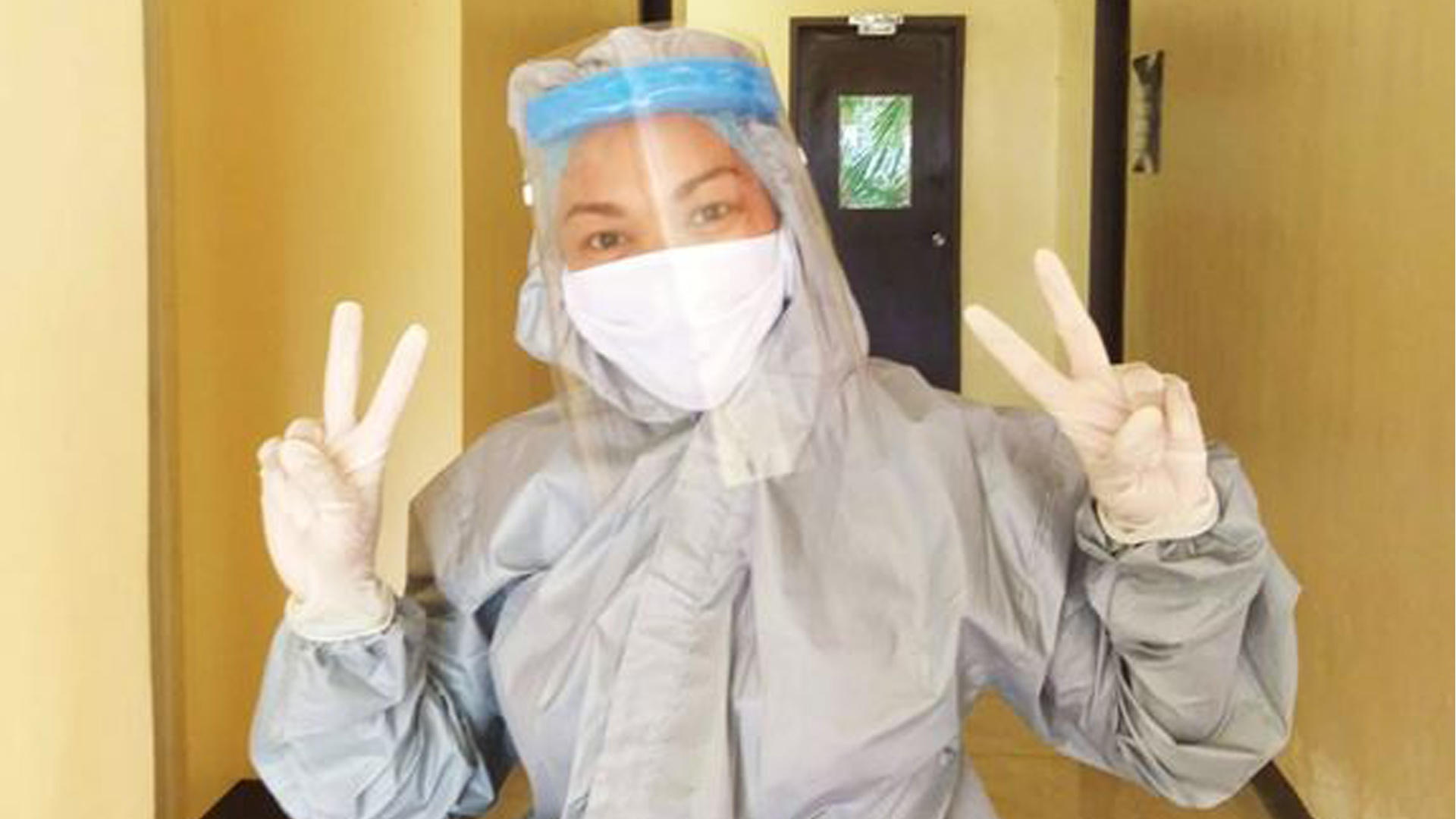27-year-old Lenny Lyn is part of the fight against this generation’s biggest threat yet. When the pandemic struck the country in the month of March, she is one of the many frontliners who suited up to serve and protect the country from the virus.
As a government health worker, she helps in monitoring the COVID-19 cases in her community. She is part of the checkpoint crew who scans the temperature of people who are crossing a main road in South Cotabato, a province in southern Philippines. She was also assigned in a triage area in her village where she interviews person with cough and colds symptoms. She has also conducted a face-to-face interview with Persons Under Monitoring or PUM.
“Being a frontliner is a challenging task especially that the enemy is invisible,” she shares. “I am worried especially that I have an infant waiting for me at home. But I need take on this task because it where I am most needed.”
Lenny’s sense of service for others is rooted from her childhood. She is the youngest among three siblings. Both of her parents are farmers who didn’t earn a regular income. Putting her and her siblings to school, especially when they reached college, was a challenge.
It was a blessing for the family when World Vision supported Lenny’s education. As a sponsored child, she grew with an environment of generosity and volunteerism. It was the same reason why she took midwifery and nursing during college because she wants to pay back by having a profession that helps others. She also aims to become a doctor someday.
“Thank you to my sponsor, Barbara from Canada, for supporting my education. It was the push that I needed to have a big dream and work hard for it,” the former sponsored child says.
Before the pandemic, she worked as a village health worker who was assigned in far-flung areas where access to medical services is a challenge. She provided prenatal care, infant care such as immunization, and check-ups for adults. Every week, she traversed hours of rough road to reach her assigned area and bring health services to the residents who are mostly indigenous people. Until she was called to be part of the COVID-19 health response of the government which she willingly accepted.
“I hope that the country will recover from this pandemic and everything will get back to normal,” she says. “For now, I will do my part to achieve the goal of a country that is free from COVID-19.”
Previously, the province recorded 3 confirmed cases of COVID-19 but all are considered negative after a retest. As of now, Lenny’s community has zero COVID-19 case.








